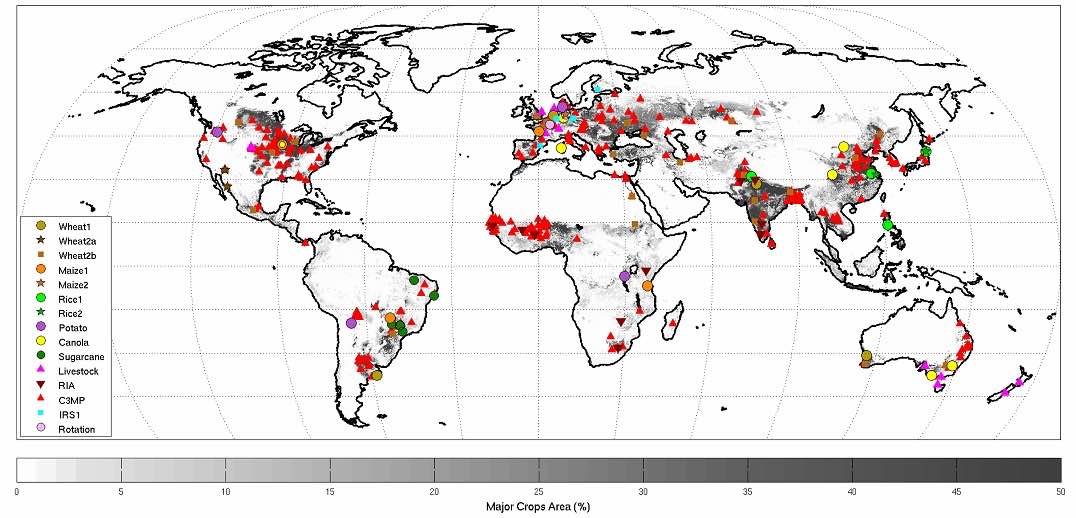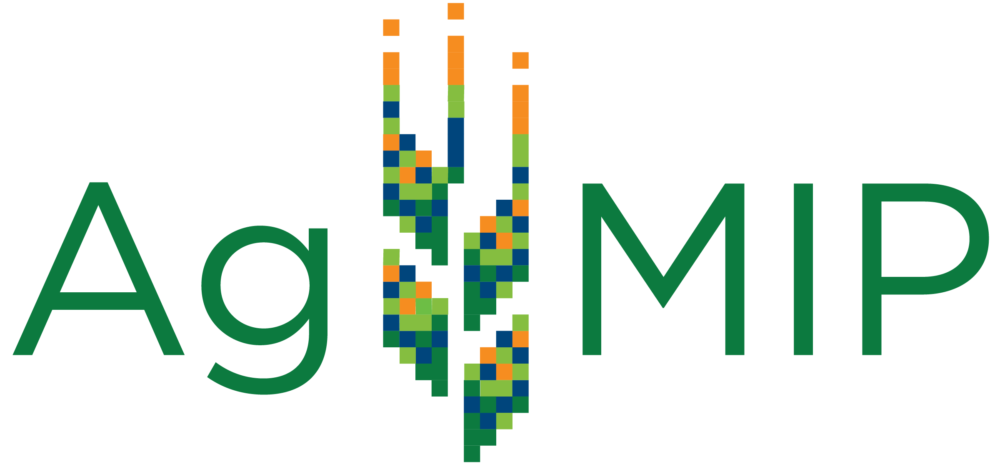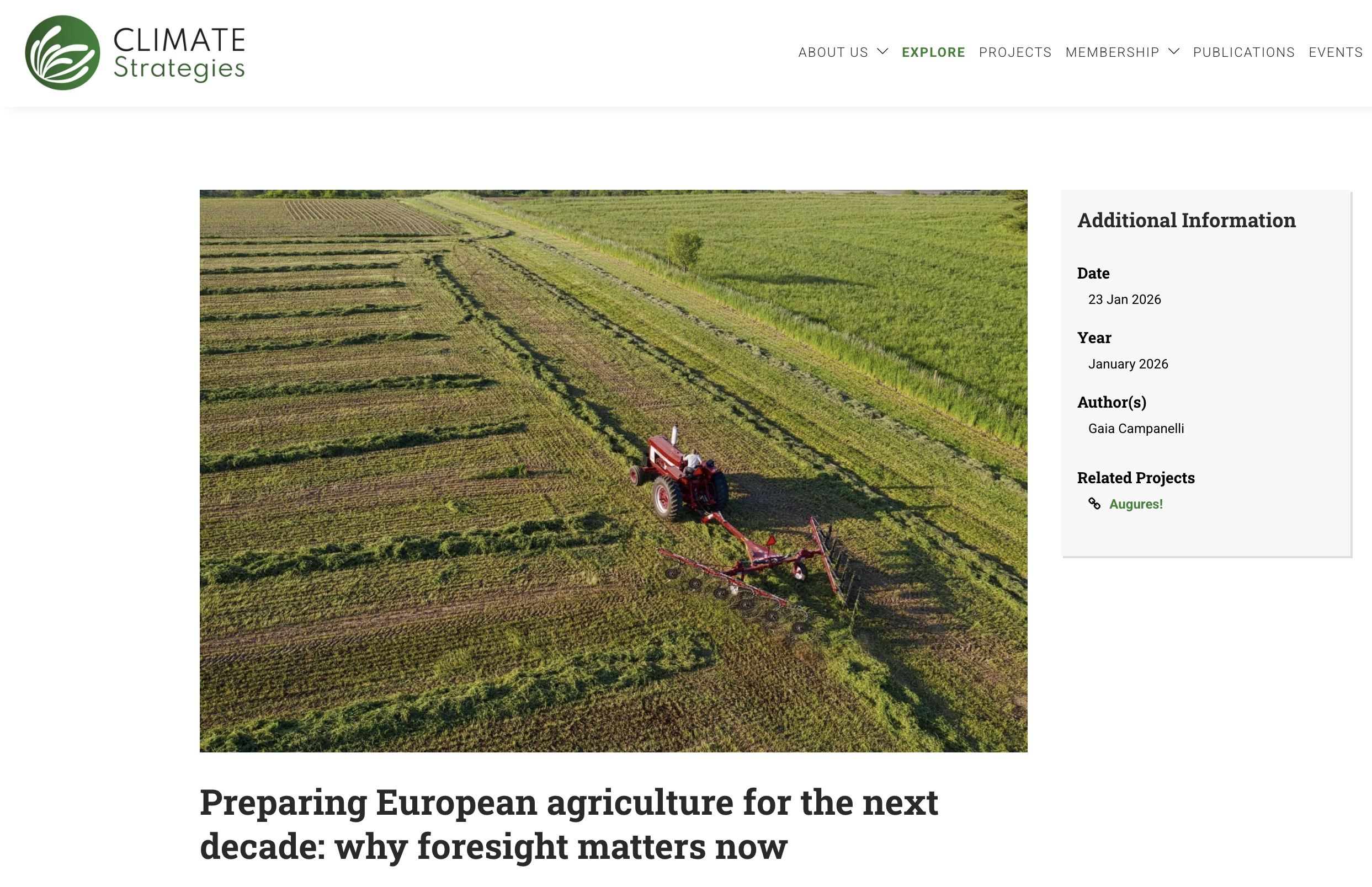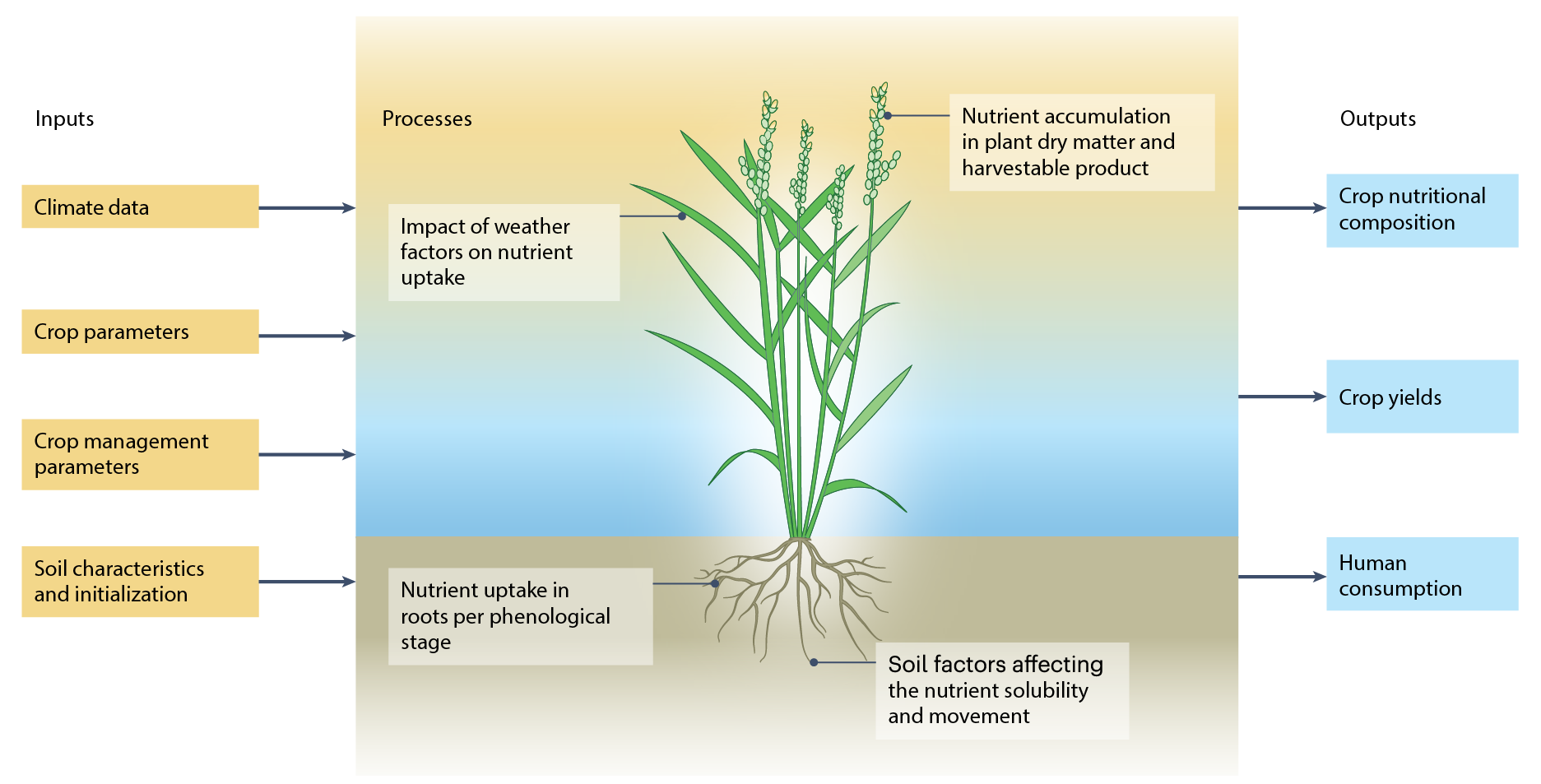Agricultural Model Intercomparison and Improvement Project
The AgMIP Mission is to significantly improve agricultural models, and scientific and technological capabilities, for assessing impacts of climate variability and change and other driving forces on agriculture, food security, and poverty at local to global scales.
News
NEW BOOK "CURRENT CROP MODELS: STATE-OF-THE-ART AND FUTURE DEVELOPMENTS"
Jan 13, 2026
The book, edited by Dr. Gerrit Hoogenboom, provides a comprehensive overview of the major crop models and the ways they address these challenges. The book explores the development of major crop models such as the Decision Support System for Agrotechnology Transfer (DSSAT)…
NYC WATER QUALITY PROJECT HOSTS YEAR 3 WORKSHOP
Dec 1, 2025
AgMIP, Columbia University, the Watershed Agricultural Council (WAC), and the New York City Department of Environmental Protection (NYC DEP) collaborated on their third annual workshop for the project “Addressing Climate Challenges to Agriculture and Water Quality in the NYC Watershed”.…
READ THE AgMIP10 WORKSHOP REPORT
Nov 14, 2025
The Tenth Global Workshop of the Agricultural Model Intercomparison and Improvement Project (AgMIP10) was held at the International Maize and Wheat Improvement Center (CIMMYT) in El Batán, Mexico, from March 31-April 4, 2025. AgMIP10 was a special opportunity for the AgMIP Community to gather at the home of the Green Revolution and to return to Latin America…
EAT-LANCET 2.0 REPORT PUBLISHED
Oct 2, 2025
The 2025 EAT-Lancet Commission released its Report on Healthy, Sustainable, and Just Food Systems, presenting the most comprehensive global scientific evaluation of food systems to date. The EAT-Lancet 2.0 report received valuable input from AgMIP community members. Building on its influential 2019 report, the new Commission – comprising leading international experts in nutrition, climate, economics...
Blog
AUGURES! PROJECT IMPROVING AGRICULTURAL FORESIGHT TO SUPPORT DECISION MAKING
Jan 23, 2026
Augures! focuses on the 10-year decision-making horizon—a critical timescale for farm investments, infrastructure planning and policy design. By combining advanced climate analysis, crop modelling and socio-economic insights, the project helps build a robust picture of agricultural risks and resilience options over the coming decade…
GUARIN & YANG ET AL. SIMULATE SEVERAL OPPORTUNITY CROPS IN AFRICA FOR FIRST TIME
Nov 27, 2025
AgMIP played a key role in VACS Phase 2, which completed an assessment of climate change impacts on the selected opportunity crops. In a new Nature Plants paper, Guarin & Yang et al. provide mid-century yield change projections across Africa for 24 crops, including 19 opportunity crops, several of which were simulated for the first time…
AgMIP PAPER IN NATURE CLIMATE CHANGE CALLS FOR INTEGRATION OF NUTRIENT DYNAMICS INTO CROP MODELS
Oct 31, 2025
Carducci & Guarin et al. (2025) highlight the importance of integrating nutrient dynamics into models that simulate plant growth and dynamics by using a new framework to better represent plant nutrient uptake from the soil, nutrient translocation across the plant, and eventual micronutrient concentration…
NEW AgMIP PAPER DISCUSSES NEED FOR BETTER REPRESENTATION OF MULTIPLE CROPPING IN LAND USE MODELING
Oct 28, 2025
In a new paper published in Communications Earth & Environment, Waha & Folberth et al. highlight that despite the widespread implementation of multiple cropping…
Research Approach
AgMIP research aims to substantially advance our understanding of model strengths, weaknesses, and uncertainty while also developing new approaches including data integration and transdisciplinary modeling frameworks…read more
Research Teams
Experts come together to advance crop studies, research methods, and other topics that are critical to understanding how agriculture and food systems will respond to climate and other factors now and in the future. Learn more about our 30+ teams.
Research Sites and Regions

Sites evaluated in AgMIP assessments, plotted with major agricultural area (gray shading). figure and description of AgMIP studies provided in Ruane et al. 2017.





